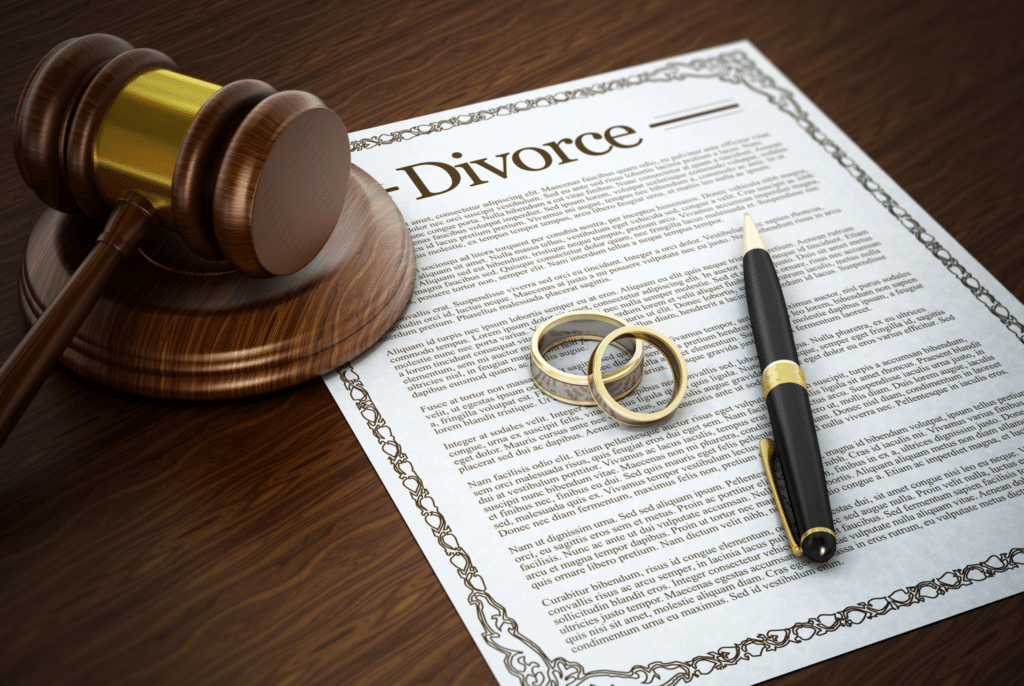- In a Florida divorce, you own assets in your name. Other assets acquired during the marriage are marital property.
- The law provides for equitable division of marital property, which aims to divide assets and debts fairly between the parties but does not necessarily split things 50-50.
- You may be able to set up a trust to protect the personal assets you brought into the marriage or obtained independently.
- To protect your personal assets from property division in a divorce, keep them separate and do not combine them with jointly owned assets during marriage.
- Connect with an experienced divorce attorney as early as possible to learn your options.
Divorce often turns words such as mine, yours, and ours into emotional battlegrounds. Learning how to protect assets from a divorce becomes a priority goal, even if you’ve never worried about your financial health. If you have, the stakes become even higher.
At The Law Offices of Travis R. Walker, P.A., our trusted family law attorneys fight for your interests. We understand your financial future may hinge on what happens across the mediation table or in court. We can show you how to protect assets from a divorce, beginning with understanding your options.
Legal Ways to Protect Assets in a Divorce
The Florida legal system cares about protecting your assets in divorce. Whenever the court receives a contested dissolution of marriage request, it issues a standing administrative order to protect against unfair actions. This order prohibits unreasonable or deceptive use of marital funds, including the selling of assets.
The law also safeguards assets that belong to you exclusively. These are “non-marital” and are not part of the asset division process. Consider a trust if you have concerns about any of those assets and would prefer additional pre-divorce asset protection. Possible arrangements include the following:
- Revocable living trusts: These hold your assets for a specified beneficiary. As the grantor, you retain control over those assets and can change the trust at any time.
- Domestic asset protection trusts: In some jurisdictions, these irrevocable self-settled trusts can be used to protect assets from ex-spouses. They typically allow you to be both the beneficiary and trustee. However, Florida does not allow the same person to be the sole trustee and sole beneficiary.
U.S. states have specific and varying laws about asset division and the use of trusts in divorce. Your safest bet is to consult an experienced Florida divorce lawyer who can explain your options, including how trust structures affect asset division strategies.
Understanding Asset Division in Divorce
Before you decide how to protect assets from a divorce, you need to know how the law divides property. Florida divides marital assets based on fairness and recognizes individual ownership of non-marital property.
Common Law vs. Community Property
Like most states, Florida is a common law property state. Common law confirms that an asset’s owner is the person whose name is on the title or deed. For example, if you purchased a car during your marriage and your name is the only one on the paperwork, the car is yours in the divorce. This rule is the opposite of community property, in which all property acquired during the marriage belongs to both spouses.
Common law property also applies to life insurance and retirement accounts. You don’t have to split a 401(k) if the account is in your name, though you can do so. If you keep the account, you may need to relinquish the equivalent value in other assets.
Claiming an asset by common law protects that asset, but it does not independently change your financial rights.
Equal vs. Equitable Distribution
Florida follows the principle of equitable distribution in divorce proceedings. Equitable distribution aims to divide property fairly, considering each party’s needs and contributions to the marriage.
In some cases, the divorce agreement may allocate tangible assets like the family home to one spouse and balance the value in other ways. The court may also order the sale of the asset.
Equitable distribution may lead to an unequal split in certain circumstances. Those circumstances may include one spouse’s non-monetary contributions to the marriage, responsibility with marital assets, or ability to support themselves.
If there’s a question of who gets the house, the court will consider factors such as custody of children and both spouses’ ability to secure safe housing.
Pre-Divorce Financial Checklist
Preparation is half the battle in divorce asset protection. Knowing your assets, earnings, and debts will help you articulate your needs and protect your interests. Before you begin negotiations, complete the following steps:
- Gather all your financial information: Create a document with details for all your accounts, including any loans. List up-to-date balances and any recurring payments.
- Inventory all assets: Make a comprehensive list of all marital and individual assets, including tangibles such as jewelry and antiques.
- Account for debts: Create another document listing all debts and whose names are on the paperwork. Debts work like assets in equitable division. Your debts are yours, but marital debts are on the common property list.
- Track your expenses: Florida courts consider financial obligations when determining equitable division. Do your best to estimate your post-divorce expenditures as accurately as possible, including basic living expenses you used to share.
Prenuptial and Postnuptial Agreements
Prenuptial and postnuptial agreements are legal contracts spouses sign to confirm their wishes in case of divorce. These agreements provide how assets and liabilities will be distributed in a divorce. These agreements typically override equitable distribution considerations at divorce.
Prenuptial agreements must be executed before the marriage. Meanwhile, postnuptial agreements are executed during the marriage. However, they tend to be tougher to enforce in court.
Many people associate prenups and postnups with wealthy couples and celebrities, but they are relevant for people at all income levels. Did you know lower-income couples have significantly higher divorce rates than those in upper-income brackets? Post-divorce financial security may be uncertain in less financially secure households, and a premarital or post-marital agreement can be a saving grace.
If you have a prenuptial or postnuptial agreement, discussing its terms with an experienced attorney is essential.
Financial Management Strategies
Financial planning in divorce is crucial to asset protection. Both parties must know their financial goals and conduct their economic affairs responsibly and transparently.
The first step is to open and maintain separate bank accounts. To avoid touching joint accounts, consider paying individual expenses from your account.
Secondly, keep your financial records as clear as possible and record all transactions. Detailed records verify your financial responsibility and may demonstrate your needs post-divorce.
Maintaining Separate Property
Keep individual and joint assets entirely separate to simplify asset preservation in divorce. Any blending can complicate the division of marital and non-marital property.
Inheritances are a typical example. If you inherited money during the marriage and transferred it into a joint account, it becomes marital property, and your spouse could claim half.
The Role of Legal Representation
Protecting assets in divorce is nerve-wracking, and you should not have to navigate it alone. You deserve an experienced attorney who can guide you through every step and safeguard your personal and financial rights.
An attorney is your ally throughout the process, from filing the initial paperwork to ensuring enforcement of divorce decrees. Whether you go to court or choose mediation, we can protect your rights and advocate for your best interests.
The Law Offices of Travis Walker: Experience in Divorce Cases
At The Law Offices of Travis R. Walker, P.A., we understand the difficulty of the divorce process. We are committed to helping you build a safe and secure future by protecting your assets while navigating one of the most challenging times in your life.
Our attorneys have years of professional experience and are committed to serving the community. Most importantly, we believe in standing up for our clients.
Client Reviews
Every client testimonial reflects our commitment to compassionate service. We are proud to share the following reviews from people we have helped:
Hena Rodely was my personal divorce attorney with The Law Offices of Travis R. Walker. Hena was assertive and aggressive with fighting for my rights as a parent. Hena was so easy to communicate with and always available if I had questions for the next step. I highly recommend Hena as the attorney that defends your right to a fair divorce. Even when I wanted to cave to some of my rights as a father, Hena would redirect me into fighting for what is right for my situation. Thank you, Hena Rodely and The Law Offices of Travis R. Walker, for honoring my right to divorce with dignity.
– Daniel F.Travis and his team are very professional and responsive! UPDATE: 10/25/2023 After a few months of hard work and dedication from Travis and his team, I left mediation today with a very favorable outcome! One that even the mediator himself was surprised to have experienced. I can finally move forward with my life and my business, thanks to all of them! I HIGHLY recommend Travis and his team for all of your legal needs!
– Andrew S.Travis Walker's knowledge of the law is outstanding. His mannerism is extraordinary. I applaud Mr. Walker for his compassion and understanding when it comes to handling the sensitive nature of family cases. His ability to keep me centered and focused during a very emotional time was impressive. I highly recommend him and his courteous, capable, and helpful staff.
– Kay D.Our Florida Divorce Lawyers
Our team of experienced divorce lawyers is ready to help you protect your assets during your divorce. Contact us today for your consultation.













